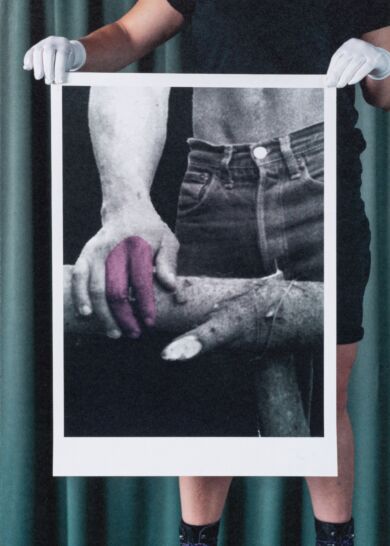Frank
Pocket
Engelsk
- Format: Pocket
- Antall sider: 264
- Språk: Engelsk
- Forlag/Utgiver: Kunstbokhandelen AS
- Nivå: Voksen
- EAN: 9788293104278
- Kom i salg: 22. apr. 2021
- Utgivelsesår: 2021
- Bidragsyter: Storihle, Sille (red)
- Utgave nr.: 1
- Emnekategori: Feminisme og feministisk teori, Kunst og kultur, Litterære essay
Tilbudspris
273,-
Ordinær pris
300,-
FRANK was an Oslo-based queer-feminist platform established in 2012 to nurture art and critical discourse revolving around gender, desire and sexuality, run by Liv Bugge and Sille Storihle until 2020. The final publication, FRANK, is a self-archive, making what we have done accessible for the future, filling institutional gaps. It offers insight into the thinking, process and life of FRANK, and it also provides straightforward information about the projects FRANK undertook and when. Running a nomadic platform that started as a salon-as a social and critical meeting place-made FRANK vulnerable to the politics of remembering, but this book gives shape to the nomadic and uncategorizable life of FRANK through newly commissioned essays, conversations, unpublished and reprinted articles, and personal anecdotes and letters.
As with many of FRANK's other projects, this book has found its form in a three-part structure following a chronology of urgency-one not defined by linear time-and understood as the various phases of FRANK. The first part, Temple of Friendship, fleshes out the initial drive behind FRANK, focusing on the salon and its various forms. Part two, Genealogies, is dedicated to our work on the tracing and touching of history through exhibitions, publications, screening series and the restaging of a historical lesbian club. The last section, Power, marks FRANK's shift from concerns of representation to production, discussing the power relationships in the art field that have encouraged and provoked us.
As with many of FRANK's other projects, this book has found its form in a three-part structure following a chronology of urgency-one not defined by linear time-and understood as the various phases of FRANK. The first part, Temple of Friendship, fleshes out the initial drive behind FRANK, focusing on the salon and its various forms. Part two, Genealogies, is dedicated to our work on the tracing and touching of history through exhibitions, publications, screening series and the restaging of a historical lesbian club. The last section, Power, marks FRANK's shift from concerns of representation to production, discussing the power relationships in the art field that have encouraged and provoked us.


